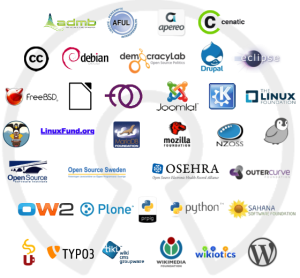The Linux Kernel recently has come up with an aptly named “Code of Conflict” to deal with some of the criticism inside that community:
Linux kernel merges "Code of Conflict" https://t.co/EKkVZFoaqa Is it perfect? No. http://t.co/Rfb4VJYFPE But I hope people come to the TAB.
— Sarah Sharp (@sarahsharp) March 10, 2015
There’s also an interview from the Linux Foundation Executive Director, Jim Zemlin about this topic:
Linux Foundation's @jzemlin blogs about 'Code of Conflict' patch accepted last night by Linus Torvalds: http://t.co/DIRRQavV67
— The Linux Foundation (@linuxfoundation) March 9, 2015
While not perfect in my opinion, it is the step in the right direction to ensure a well behaving community. While most people will be excellent to each other, there will also be outliers. Also, it’s important to set expectations within a open source community and really just set the ground rules.
Finally as a prediction (and hope), I expect to see more open source communities, foundations and even companies start implementing these code of conduct style guidelines this year.


